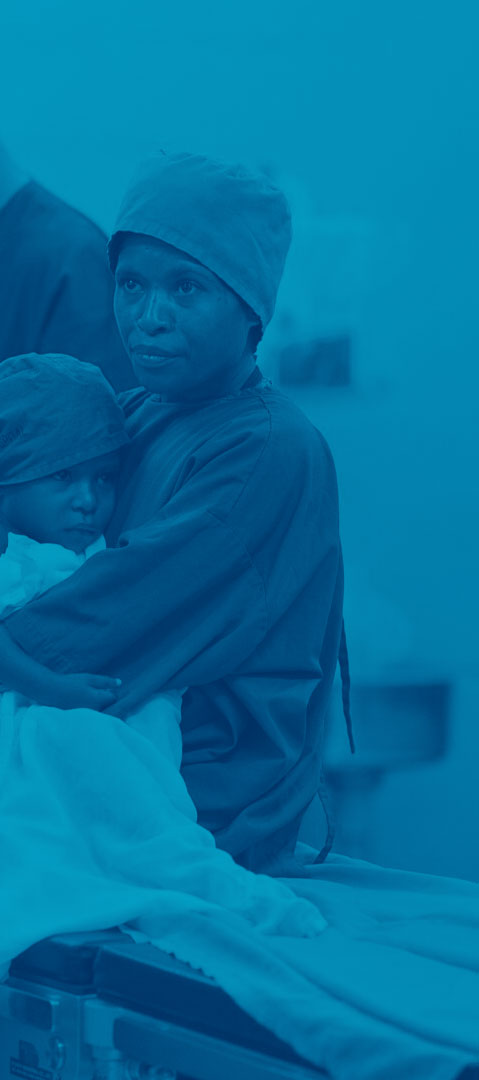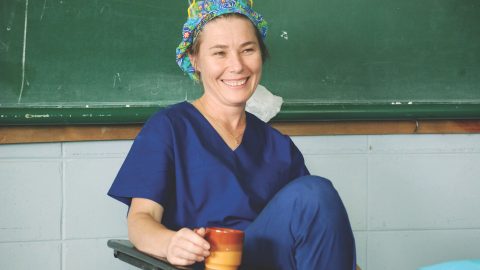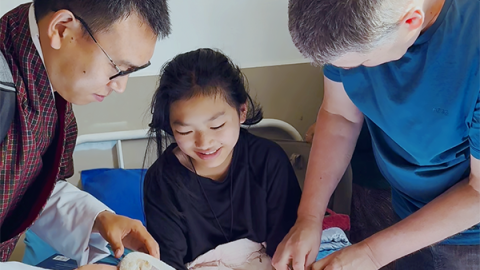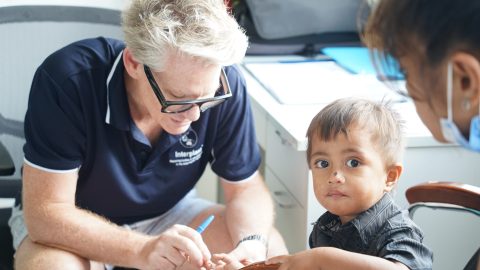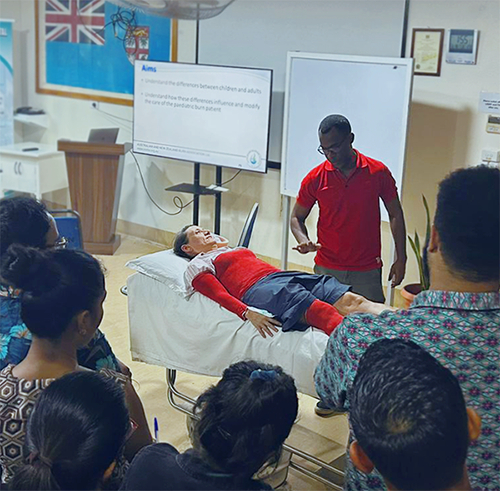
Earlier in the year we were back in Fiji delivering Emergency Management of Severe Burns (EMSB) training in Suva and Labasa.
This training is critical – with half the world’s population relying on open flames to cook, stay warm, and light their homes, accidents are common. Hundreds of thousands of deaths are caused by burns annually, and for every person who dies as a result of their burns, many more survive with permanent disfigurement.
Without immediate access to appropriate management of severe burns, burn injuries are left to heal themselves. This results in burn scar contractures, which often severely limit a person’s mobility and can result in life-long disability.
A standardised approach to severe burns
The EMSB program is run by Australian & New Zealand Burns Association (ANZBA), and is a course which teaches how to recognise, assess, stabilise and transfer the severely burnt patient.
Relevant clinical skills are demonstrated, and important topics are explained in more detail in group discussions. Life-like case simulations are then used to consolidate and integrate the course material.
The course is aimed at health professionals who may find themselves caring for a person with an acute severe burn injury. It supplements existing clinical knowledge in trauma management with the specific aspects and challenges associated with a burn injury.
For the past 20 years, Interplast has partnered with ANZBA to deliver this training program across various countries in the Asia Pacific, including in Fiji – where we have also delivered the instructor course, to build up local faculty.
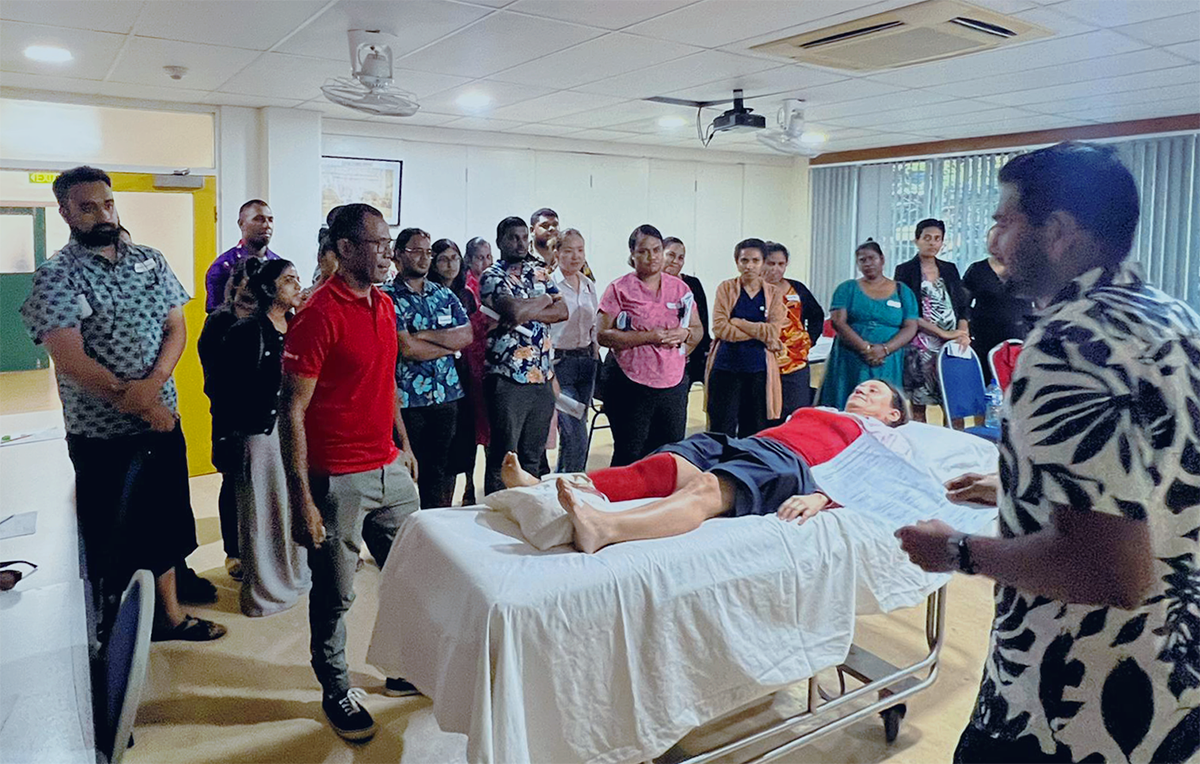
Colleagues in Labasa build the capacity of Fijian clinicians in early management of severe burns.
Training the next trainers
The objective for our most recent EMSB Program was to continue to build-up the Fijian faculty of EMSB providers whilst reducing the need for intervention from Interplast volunteers.
Due to the success of our recent ‘train the trainers’ work, a reduced number of Australian volunteers were needed, as the Pacific team takes over the delivery of training their own colleagues. Going forward, this means we can gradually reduce our involvement; until we are no longer needed to coordinate or deliver training at all.
Building capacity in our partner countries is fundamental to our vision. By offering local medical professionals the chance to boost their knowledge and skills and learn new techniques, we help create sustainable health systems in the communities where we work.
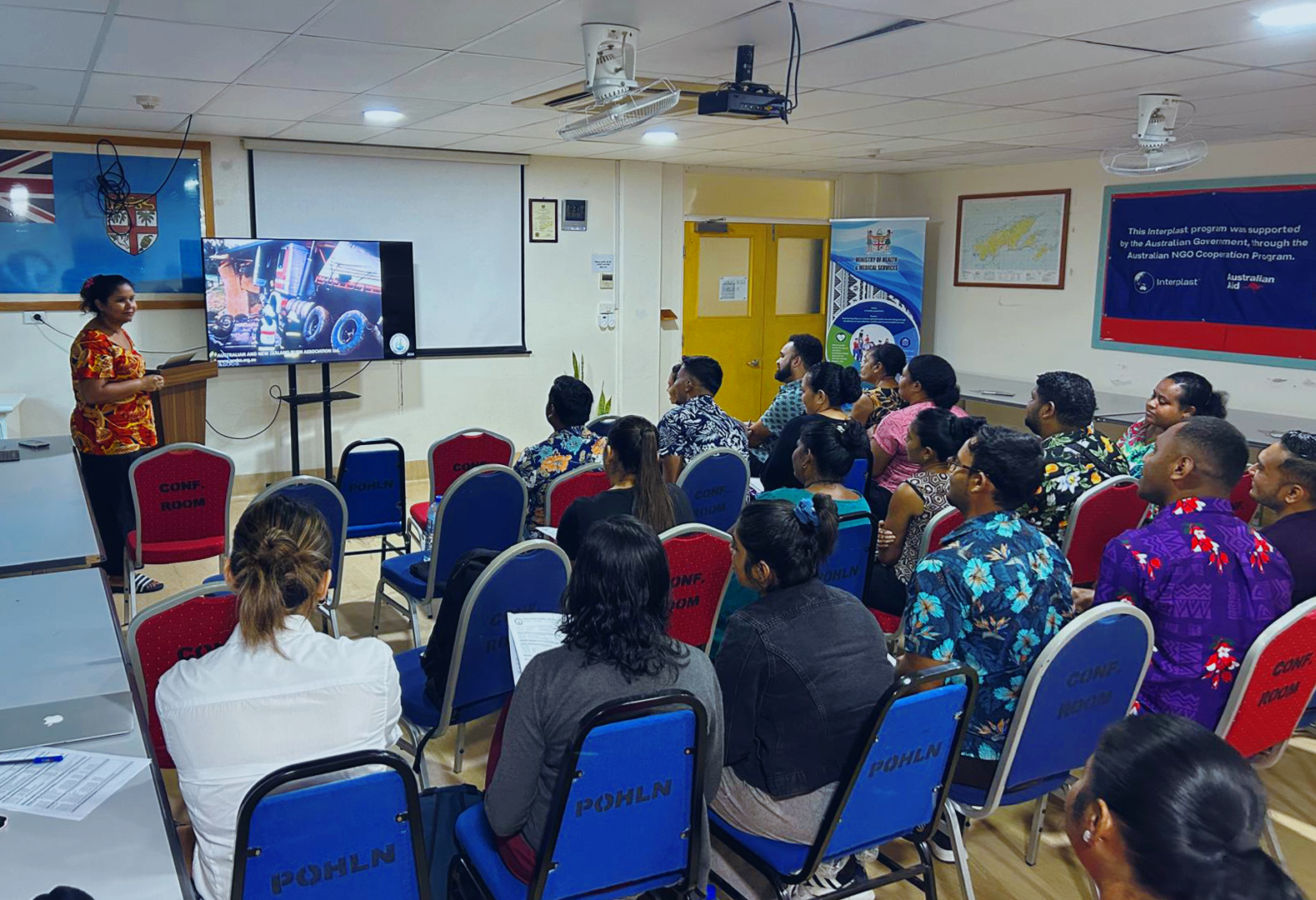
Dr Manisha Tuima of the Pacific EMSB faculty, presenting one of the sessions in Labasa.
Acknowledgements
This vital work was delivered in partnership with the Australian Government through the Australian NGO Cooperation Program (ANCP), and with support from ANZBA.
You can support Interplast’s work in Fiji and other Pacific and Asian countries by donating. Every dollar counts.
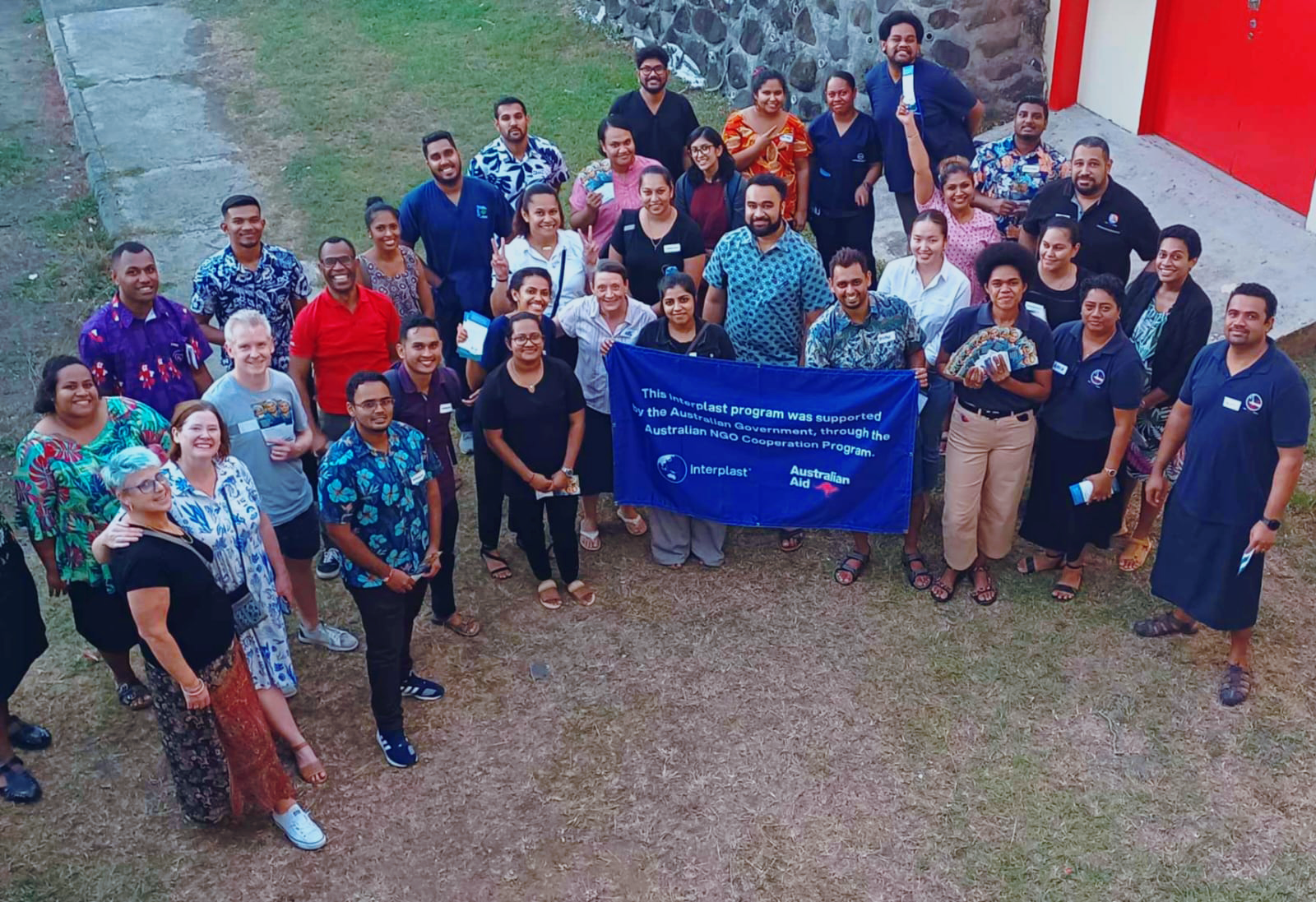
Participants and instructors from EMSB training in Labasa.
